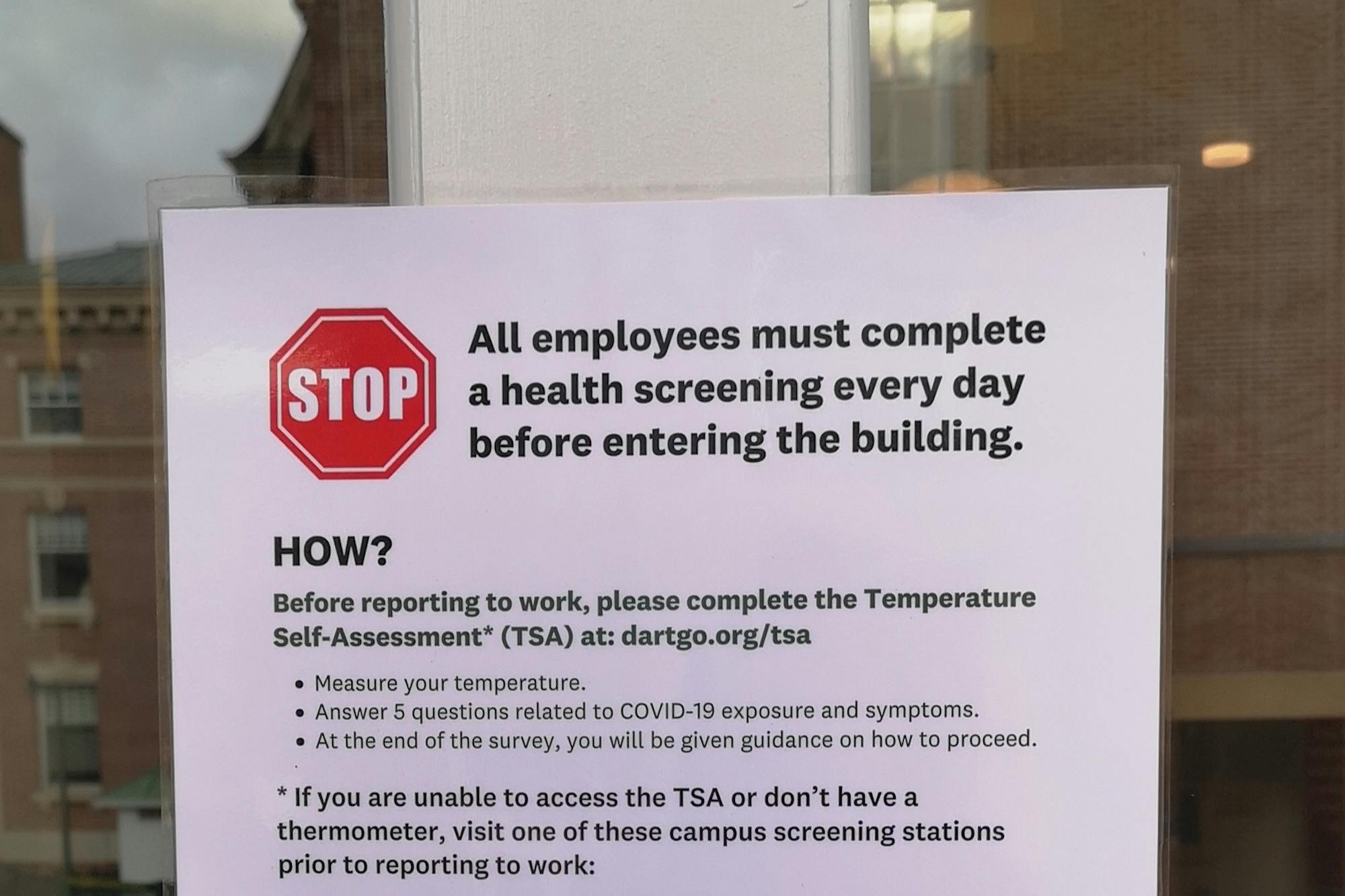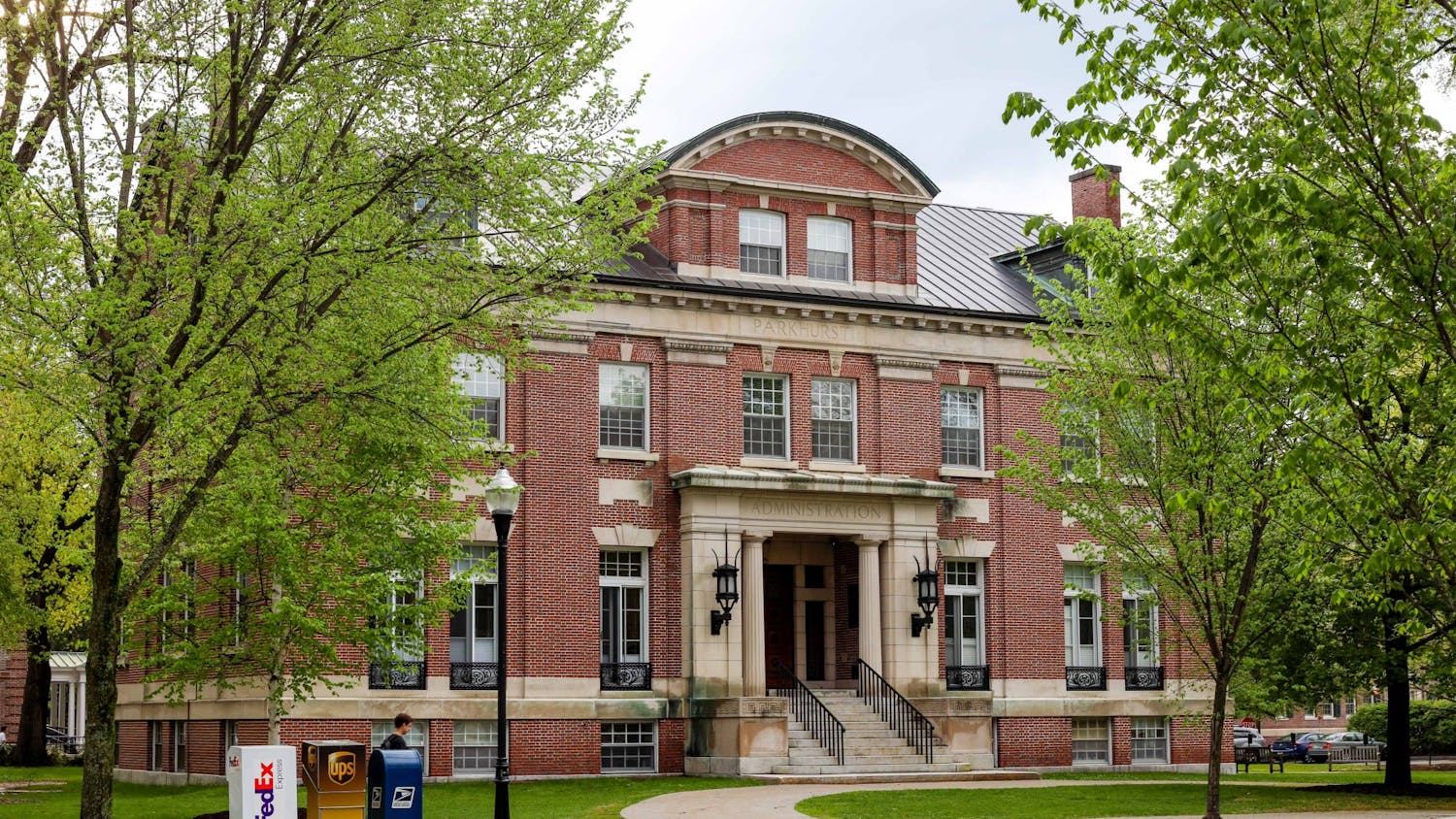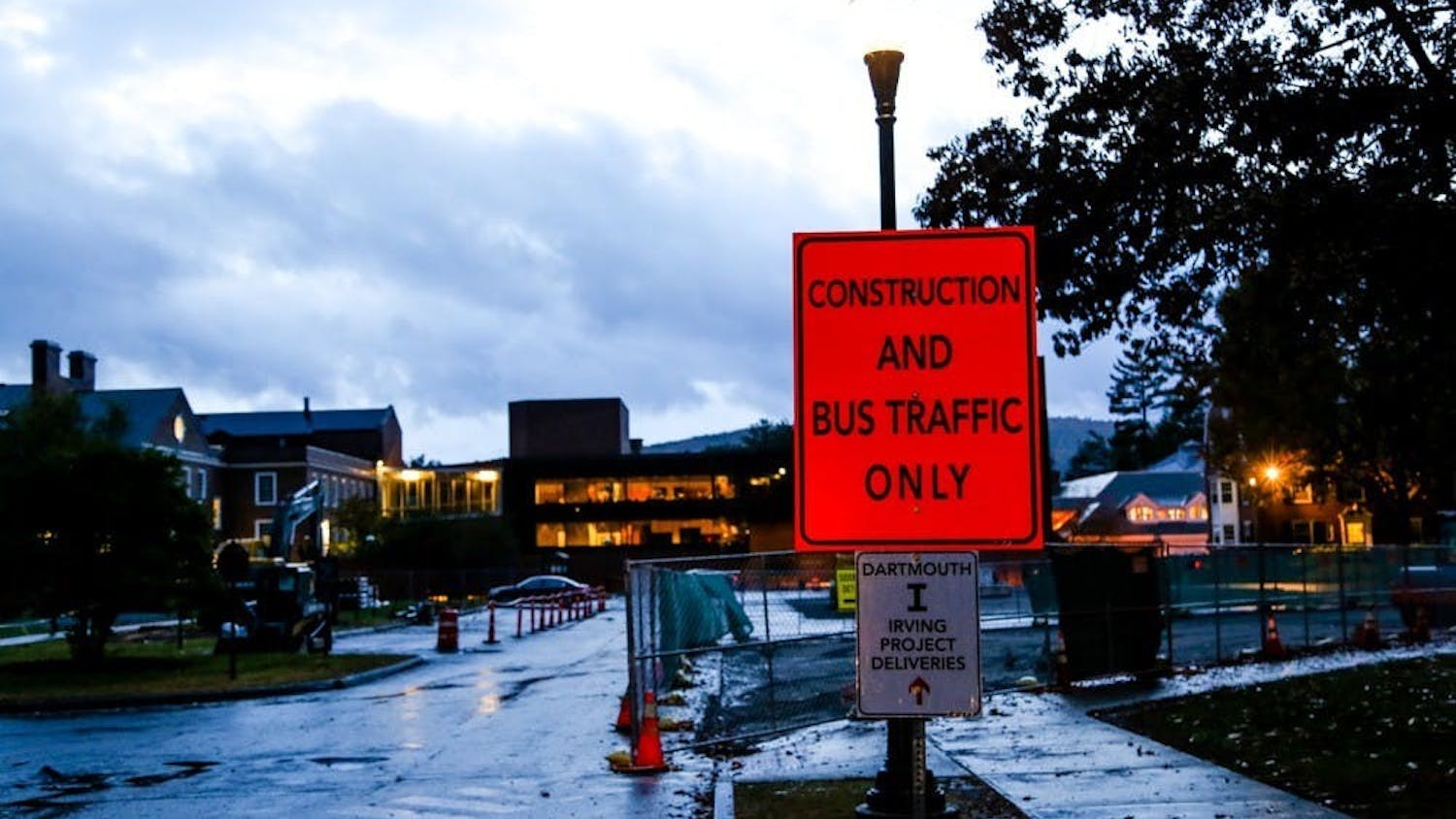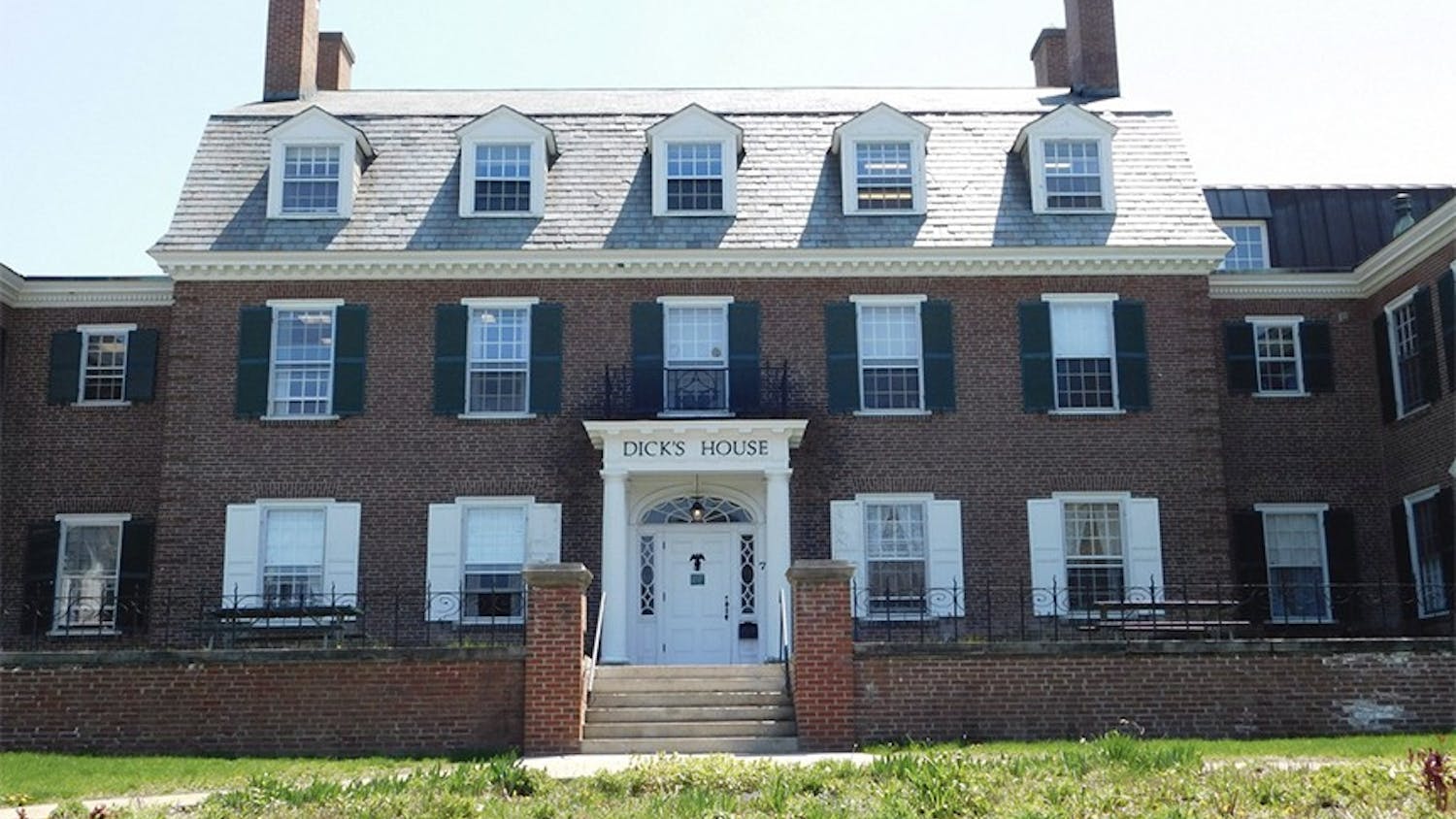As New Hampshire begins to reopen, Dartmouth is requiring mandatory temperature checks for all employees returning to work — just one step among many to keep up with state guidelines. As a decision about fall term looms, College leaders say it is “too early to tell” how state guidelines might impact the potential return of students.
The College has created a webform called the “Temperature Self-Assessment” that asks employees to take their temperatures daily and answer a series of questions regarding possible COVID-19 exposure or symptoms. The measure is in line with the general guidelines for businesses released by Gov. Chris Sununu’s Economic Reopening Task Force on May 1.
Interim vice president for institutional projects and COVID-19 task force co-chair Josh Keniston explained that when employees or researchers open the form, they can either log in with their Dartmouth Net ID or as a guest. The form then asks the individual whether their temperature is above 100 degrees Fahrenheit.
The form also prompts workers to answer questions about their exposure to confirmed cases of COVID-19 and whether they have experienced COVID-19 symptoms. Some of these questions are more specific versions of employee questions mandated by the state of New Hampshire. For example, while the state encourages employers to ask, “Have you been in close contact with a confirmed case of COVID-19?,” Dartmouth asks specifically about exposure within the last 14 days.
Keniston said that if the self-assessment indicates that an employee may have COVID-19 or may have been exposed to the coronavirus — either through a recorded temperature over 100 degrees or an affirmative answer to at least one question — the College’s office of environmental health and safety and the office of human resources will be notified and that employee will be asked not go to work. He added that a follow-up process will require the employee to get in touch with a health care provider.
Keniston also said that while most people use their own thermometers and complete the Temperature Self-Assessment at home before work, there are temperature checking stations on campus for those who do not have access to a thermometer or Wi-Fi connection at home. Both he and his task force co-chair, Geisel School of Medicine professor Lisa Adams MED’90, noted that if people did not have thermometers before the pandemic began, it can be difficult to find them now given shortages in the area.
There are on-campus testing stations at the Class of 1953 Commons, the Hopkins Center for the Arts and Dick’s House, according to director of environmental health and safety Meg Sandy. She added that supervisors are carrying out the testing at ’53 Commons, volunteers are carrying out the testing at the Hop and employees are carrying out the testing at Dick’s House.
Keniston clarified that the undergraduate students staying on campus are not expected to take their temperature using the College’s system, and that screening is intended for those entering academic or administrative buildings.
Adams said that the state did not give any mandatory guidance on how to collect information from temperature checks, so the College chose to create an online system. Additionally, while the state only requires a temperature check requirement for employees, Adams said that the College has extended the measure to “graduate students and postdocs who may be involved in some of the minimal maintenance research activities.”
She added that as the College begins to ramp up on-campus research, these requirements will extend to anyone who resumes research activities.
Other universal state guidelines include allowing employees to work from home “as much as possible,” making hand sanitizer available for employees and updating employee illness policies to cover COVID-19 symptoms.
Keniston said that the employees whom the College allows on campus include dining hall employees, facilities workers and Safety and Security staff, as well as a limited number of researchers and graduate students with projects that “had very specific requirements and were allowed to continue.”
Hanover town manager Julia Griffin said the town hasn’t been involved in the College’s temperature check system, despite providing interpretation of state guidelines for other entities, including Hanover landlords. She instead credited Dartmouth’s “great pandemic team.”
Adams noted that one major challenge the task force faces is interpreting state guidelines and that it has been relying on their legal counsel for advice.
In addition to the universal guidelines, the state has also created guidelines for particular locations or industries, including rules that apply only to entities like stores or parks. That said, there have been no guidelines released for colleges and universities to date, according to Adams, who added that she had offered to give input to the state on potential guidelines.
Director of Dartmouth Dining Services Jon Plodzik wrote in an email to The Dartmouth that DDS is following the guidelines for restaurants, since there is no state guidance as of yet for dining halls and cafeterias. As of May 18, the restaurant guidelines include mandating businesses to use only to-go packaging, ban indoor seating and mandate face coverings for all staff working in food establishments, in addition to the temperature screening assessment, Plodzik wrote.
Keniston said that the College is planning to have some form of COVID-19 screening process in place “for all of the summer and through the fall and potentially longer.” He added that the process is a “pilot phase,” as the College tests the temperature checks among the limited number of people currently on campus.
Keniston noted that the College is looking into the best ways to “make modifications to processes and physical space” to facilitate social distancing and increase the availability of personal protective equipment as faculty, staff and students return to campus.
Adams said that while it is “too early to tell” how state regulations may impact the fall term, she is looking forward to receiving guidance from the state that is specific to colleges and universities.
Reflecting on the timeline for reopening, Adams said that it is important to balance waiting to gather solid evidence with deciding early enough to allow people to prepare.
“We will, over the next few weeks and even months, have a better sense of [what reopening looks like] as we start to relax some of the restrictions,” Adams said.




